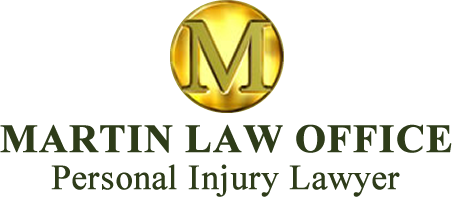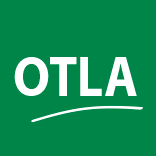NO WHEELS NO CHANCE NO LIFE

Car crash victims lose so much after the crash. Health, job, income, savings and often even their home and marriage. A car crash isn't an inconvenience. It isn't a setback. It's outright devastation. Let's add another loss to the list that we never talk about. Depending on the nature and severity of those injuries, some crash victims lose their drivers licence. In Ontario, physicians, nurses and optometrists are required to report a medical condition that may impair a patient's ability to drive. When you drive a car in Ontario, you must meet basic medical standards so you don't pose a threat to other drivers on our roads. If you are not medically fit to drive, your driver's licence may be suspended for medical reasons. That's the terrible reality for many car crash survivors.
Throughout Ontario, and particularly in rural Ontario, your truck or car is everything. Your wheels are life. There is no public transit in most areas of rural Ontario. It doesn't exist. We are completely dependent on our car to feed ourselves and buy basic supplies and necessities of life. Losing that driver's licence forces crash survivors to beg family, friends and neighbours for help. It isolates the isolated and cuts off the injured at a time when they need all the social and community support they can get. Through no fault of their own, crash survivors are victimized all over again.
So what can a crash survivor do when their licence has been suspended due to medical conditions caused by the crash?
Let's take at look at 4 practical tips:
- Your own car insurance adjuster can arrange and pay for transportation, usually by cab, for your pre-approved medical and rehabilitation appointments like regular visits to your family doctor, physiotherapy, massage therapy and gym membership. This must be applied for and arranged in advance and be approved by your accident benefits adjuster. Again, this is easier said than done. After 20 plus years helping the injured in my practice, we've seen how this shakes down. The majority of adjusters either work in the suburbs of Toronto or Ottawa either in office or at home. Their personal and professional knowledge of rural Ontario is zippity. There is a complete lack of understanding of how far rural insured live from treatment. There is no appreciation of distance. After first dismissing their rural insured with helpful suggestions to take a bus, take a subway, walk or ride a bicycle to those medical appointments, most adjusters then reluctantly approve and set up transportation. Most insurance companies have contracts negotiated with large Toronto or Ottawa cab companies. So when their injured insured needs transpo, they send a cab from Toronto or Ottawa into the woods or down a gravel country lane. They do not support locally owned cab companies that know the local roads and conditions. This is problematic for many reasons as the drivers frequently get lost despite GPS and smart phones, are confused by 911 lane numbers, are usually late, sometimes don't show at all because of terrible driving conditions on the 401 highway, are robbed of tips from lucrative short runs, and personally despise taking these calls. Cab drivers are not paramedics and do not want to physically help the injured passenger in and out of their cab. They don't want blood, urine and vomit staining their cab. They fear the cleanup. They just don't want any part of it. This makes insurance based transportation a hostile, difficult and draining experience for the injured. It exists. Sometimes it even works for a while. But it doesn't work well and usually ends badly;
- Community based pickle buses often designated for seniors may run a preset loop from a common pick up and drop off point. That requires the insured to find transportation to and from the meet up location and efforts to schedule grocery shopping and required errands around a set once or twice weekly bus schedule. It often means long hours waiting for the bus in town and a full day of hurry up and wait exhaustion. Community busing is an incredible resource for many and is often staffed by hardworking volunteers. But it isn't a practical setup for the injured who physically and emotionally just can't deal with it;
- Pay out of pocket for any local cabs and rideshare and keep receipts. To be submitted to your injury lawyer and ultimately included as part of your expense claim made in the tort lawsuit against the insurance company paying for the at fault driver who hit you. Many injured do this. While it works, it may take years before your tort claim is resolved and you are reimbursed. That means years without repayment when injuries prevent the injured from making a living or any income at all. When basic living expenses are already stretched thin, this may not help much when dollars matter and financial help is needed the most. Your family may also have companion Family Law Act claims in your lawsuit against the at fault driver. When they take the time to drive their out of pocket expenses for gas, mileage, meals as well as lost income for time off work or childcare should be submitted in that claim. Your injury lawyer should discuss this with you; and
- Speak to your family doctor about how to set up a driver exam so you can get back on track with getting that licence reinstated. It's critically important the injured have a good working relationship with their family doctor. Your family doctor is the gateway to your health system and recovery. Getting that licence reinstated is never easy. Severe crash injuries take time to stabilize. A lot of time. It may take years before your family doctor is prepared to support your reinstatement. That's a devastating situation for any injured person to be in.
There are no easy solutions to this mess particularly for the rural injured. What insurance companies have worked out in the cities to cut costs and budget just doesn't work well in rural Ontario. But rural Ontarians are still forced to pay mandatory car insurance even when they don't get the same benefits and service as their city cousins after a car crash. They don't complain. Most rural drivers are stoic and just try to work it out. Some car insurance adjusters know this and count on it. All stake holders and all rural consumers in Ontario should be speaking with their provincial members of parliament and raising their concerns with local media. In the meantime, hardworking family doctors and their office staff do their best with the limited resources they have and the legal and professional responsibilities they bear. Your injury lawyer should be aware of the practical problems you deal with in your day to day struggles after the crash. And your injury lawyer should be willing to help.
This local, community injury lawyer knows the struggle is real.
Martin Law knows crash survivors in rural Ontario should not be hit over and over again by their own car insurance company and a system that does not know and does not care to know about the realities of rural life.
When you've been injured in a car crash, call Martin Law to find out where you stand.
Losing Your Licence
After You've Lost Everything

